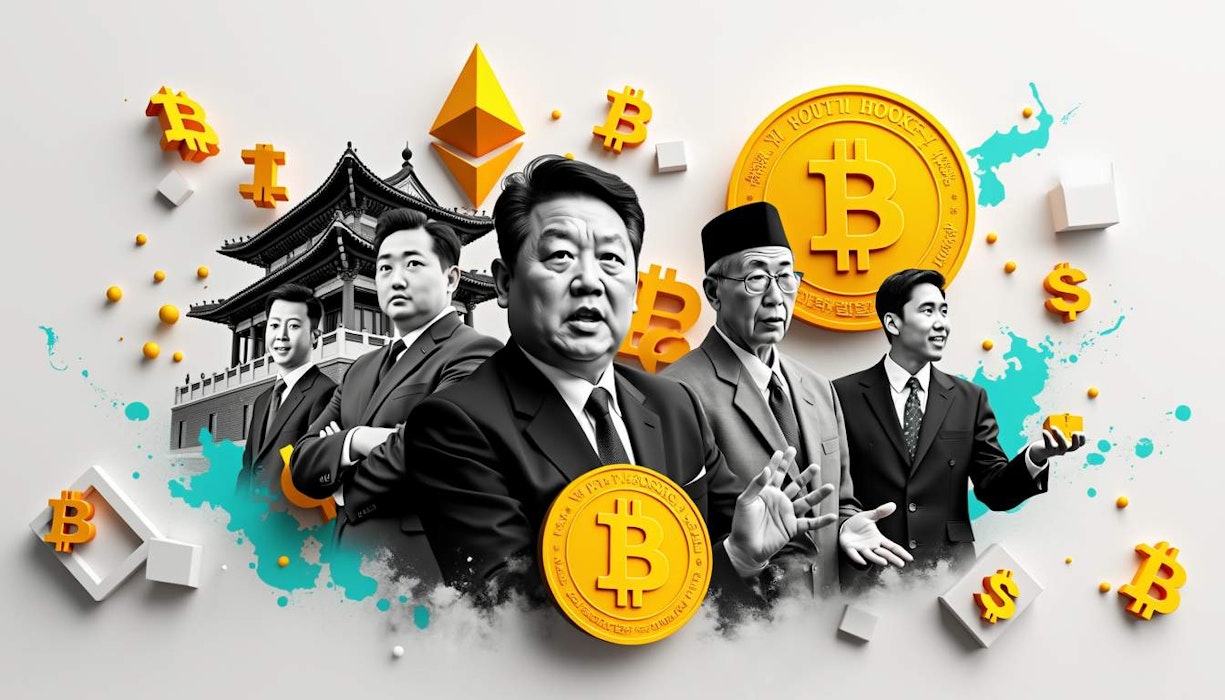Understanding Political Turmoil's Effects on Crypto
Political unrest in South Korea has sent shockwaves through the cryptocurrency market, creating a unique environment for investors. As the nation navigates through turbulence, the ongoing shifts could change how many view digital assets, especially with the spotlight on decentralized platforms. This situation also raises questions about the long-term future of South Korea's blockchain industry and its impact on crypto marketplaces worldwide.
The Shift Towards Crypto in South Korea
Sudden Market Movement
After President Yoon Seok-yul's declaration and rapid retraction of martial law, the crypto market reacted violently. Bitcoin's price at Upbit, South Korea's primary exchange, dipped to $62.3K, a sharp drop that caught many off guard. With trading volumes soaring to record levels, it was clear that panic was driving a sell-off. It’s not surprising that during this volatility, the South Korean exchanges briefly led the global rankings in trading volume.
Erosion of Trust in KRW-Based Assets
The political turmoil has severely eroded trust in KRW-based assets, leading many to seek refuge in cryptocurrencies. Investors are turning to digital currencies as a hedge against rising geopolitical risks, aware of their independence from direct government control. This trend mirrors past crises, where cryptocurrencies acted as a safe haven during Hong Kong protests and the Russia-Ukraine war.
Impacts on Crypto Marketplaces and International Exchanges
Regulatory Changes and Shift Overseas
South Korea's exchanges are known for their security, bolstered by stringent travel rules and KYC (Know Your Customer) regulations. However, these same protections have kept the reverse Kimchi premium alive, meaning a notable gap in prices compared to global markets. The local exchanges experienced server issues due to the massive overnight trading volume. Unlike their overseas counterparts, this incident made South Korean platforms seem unstable.
Investors are expected to flock towards international exchanges and DeFi platforms, with Binance and Coinbase being popular choices for their reliability and financial offerings.
Project Relocations and Future Outlook
Moving Blockchain Projects
Political instability is shaping the future of blockchain projects, pushing many to relocate overseas. Major players like Nexon's blockchain branch and Klaytn have already moved to nations with friendlier regulatory environments. The mass exit raises fears of a brain drain that could affect South Korea's competitiveness in blockchain technology. As the demand for Web3 and blockchain solutions increases, losing talent could have lasting negative consequences.
Regulatory Environment and Market Stability
South Korea's government aims to enhance regulatory measures, potentially making the local market less attractive. However, many view this market as maturing, providing a blend of regulation and tech innovation. Supportive regulations and economic factors could still create a fertile ground for cryptocurrency adoption.
Summary
What’s the takeaway? The martial law situation stripped away some of the illusions that the market had until now. The swift disappearance of $33.3 billion in transaction value, and the resulting server failures across major exchanges highlighted both the political risks and fragility of the current trading system.
Instability is likely to persist in the near term, but with the right improvements, this might be the turning point that leads to a more stable Korean cryptocurrency ecosystem.
